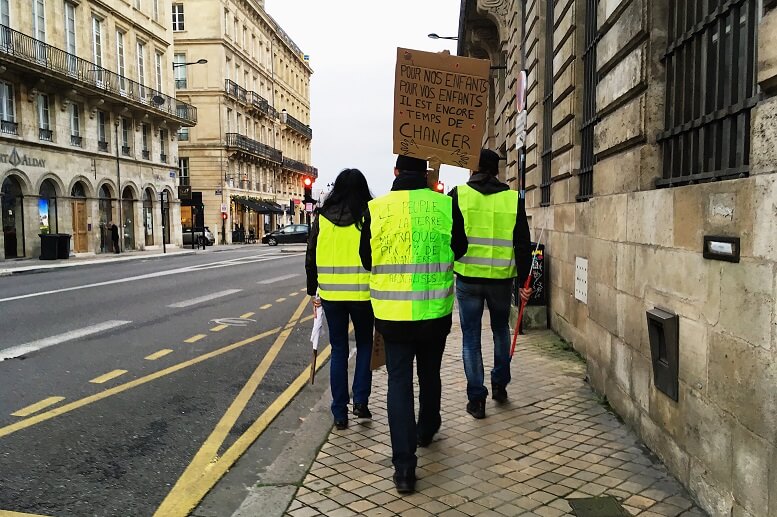Unless you’ve been living under a rock, you’d know France has been under a state of emergency for weeks. Thousands of residents have flooded the streets surrounding Paris violently protesting. These demonstrations are known across the globe as the yellow vest protests.
Yellow Vest Protests
The demonstrations began after France’s President Emmanuel Macron announced that the country would have a rise in duties on diesel fuel. Diesel prices have risen around 23% this year, and the tax increase on French motorists would be around 6.5 cents.
Macron blamed the world oil prices on the rise but also said higher taxes would fund renewable energy investments. Since the protests, the French government has agreed to halt the fuel tax and has even stopped the gas and electricity price for 2019.
Around 125,000 protesters have flooded the streets in France. The problem? These yellow vest protests haven’t been the most peaceful. The French capital was hit the worst as protesters smashed windows, burned cars, and looted shops.
“It’s a catastrophe for business, it’s a catastrophe for our economy,” Finance Minister Bruno Le Maire said during a visit to shops in Paris that had been damaged during the protests.
>> Trade War Dispute Continues? Qualcomm Injunction is Granted
The yellow vest protests have been bad news for the French economy, as restaurant trade has declined by 20-50%. To date, over 2,000 people have been arrested, one person has died, and close to 1,000 have been wounded.
Macron Steps Up
This week, the French president has stepped up in aims to halt the protests. Macron told the press that he plans on raising minimum wages in 2019. The country’s minimum wage is set to increase by 7%. The details of this are still being fine-tuned by the country’s government.
President Macron got the message sent out in the yellow vest protests and has acted. Measures to defuse the riots will cost the country 10 billion EUR and that money will be offset by cuts in other government spending.
Featured Image: Depositphotos © sportpoint











